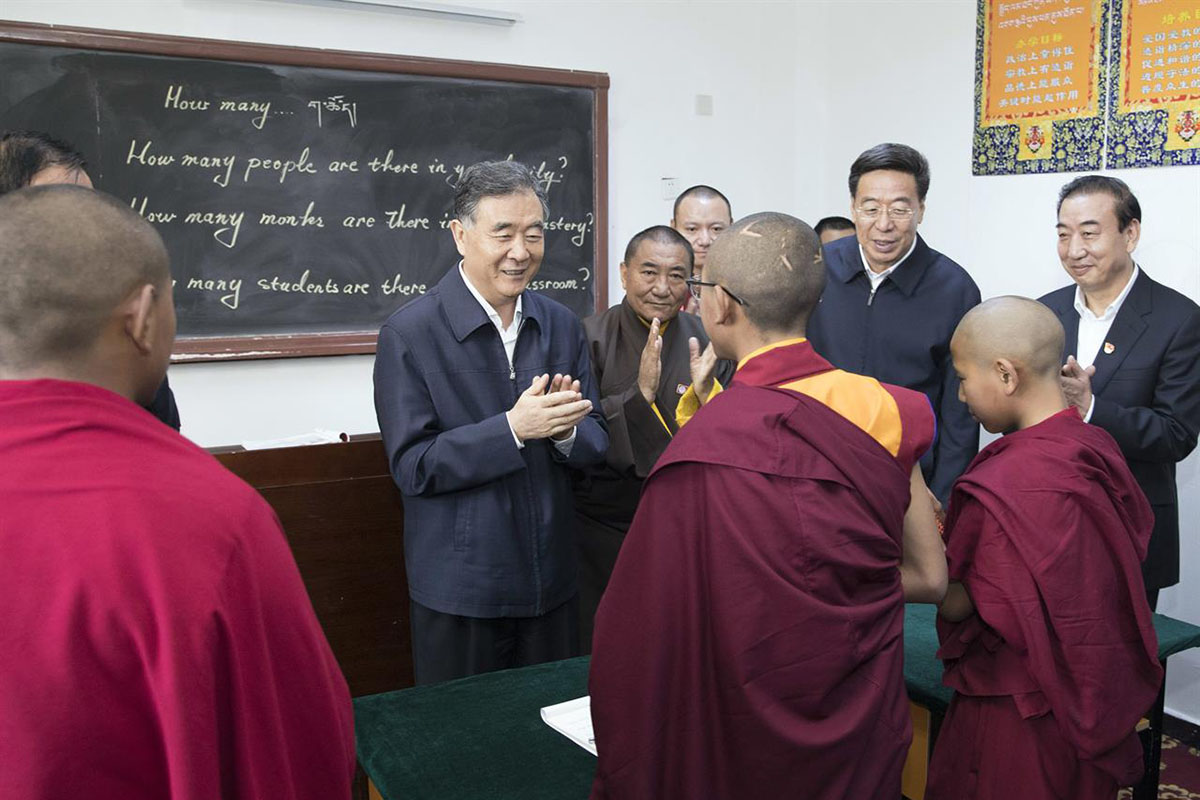
Photo: Xinhua
Wang Yang, the fourth ranking official of the Communist Party of China (CPC), visited Lhasa, the capital of Tibet, where he called for a revitalisation of the CPC’s fight against “separatist elements and activities” for religious harmony and ethnic unity inside Tibet. He was speaking at the Chinese People’s Political Consultative Conference on August 26.
Mr Wang, who is a member of the Politburo Standing Committee of the Chinese Government which shoulders responsibility for religious policy, spoke on the “sinicisation” of religions in China – in other words, an insistence on adherence to the dictates of the officially atheist party – saying that more efforts are needed to better integrate Tibetan Buddhism into the socialist society. Wang urged improved and innovative temple management and called for advancing anti-separatism efforts.
Xinhua, the Chinese state-run media, quoted him as asking “the religious circle to firmly uphold the leadership of the CPC, inherit and promote patriotism, and be courageous to battle all separatist elements, in order to further protect the national reunification, ethnic unity and social stability”.
The recent tightening of security measures in Tibet includes requiring students to sign agreements stating that they will not “take part in any form of religious activity” during the school summer holidays.
“The tactics in Tibet are largely aimed at reducing the influence of the region’s spiritual leader, the Dalai Lama, who lives in exile in India. China claims Tibet has been part of its territory for more than seven centuries and regards the Dalai Lama a dangerous separatist”, reports The Hindu, a daily Indian English-medium newspaper. The Hindu also reports that recent months have witnessed an extensive crackdown on traditional Muslim culture in the Uighur ethnic minority group in China’s northwestern region of Xinjiang (East Turkestan) and among Christians in eastern China.
Xinhua generally depicts Mr Wang’s visit to Tibet as one of benevolence. He called for more efforts in poverty relief and religious work to “ensure prosperity development and lasting stability”. They have printed a nice picture of him sitting at the table with a Tibetan family in their home and quoted him as talking about people’s well-being and ethnic solidarity. However there is much cause for concern, for example he states that poverty relief can be combined with ecological protection, and that ecological relocation work in high-altitude mountainous areas should proceed steadily. When China mentions “ecological” – or environmental – development in connection with relocations, there are reports this “development” has in the past turned out to be mining and exploitation of Tibet’s resources.




 Print
Print Email
Email